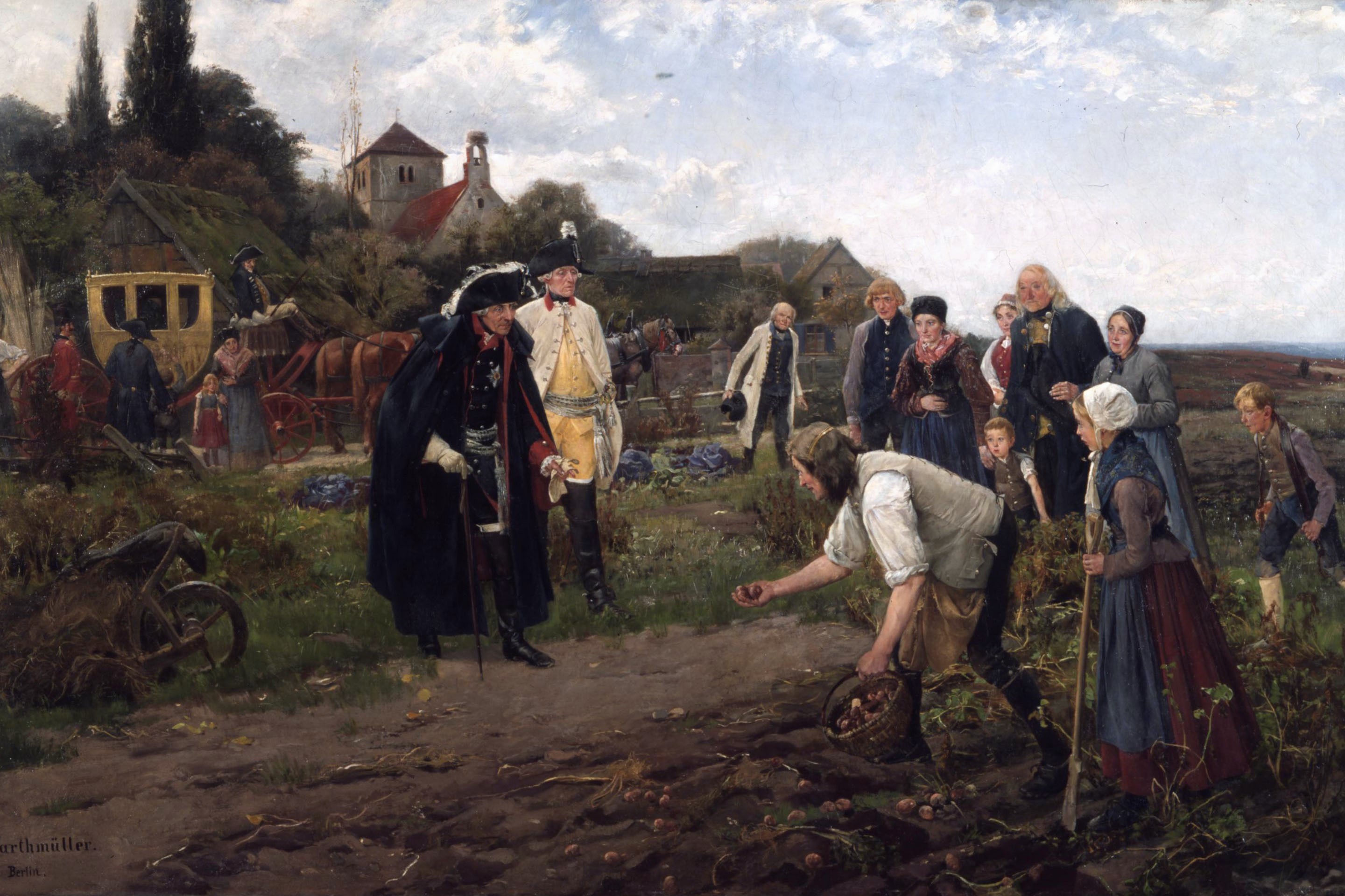If you thought rebranding was kind of a new thing, think again. Here’s a tale from the 1700’s about rebranding that beautifully demonstrates the Law of Scarcity.
Old Frederick the Great ruled the Kingdom of Prussia for 46 years. The the self-declared King of Prussia (nicknamed Old Fritz) had many military victories, was a gifted musician (he played the flute) and a fan of architecture. He was also into agriculture in a big way, developing land for crops, and founded Germany’s first veterinary school.
Perhaps the coolest thing about Old Fritz though, was his “rebranding” plan to get his people to eat potatoes. He’d introduced the crop, along with turnips, to the country. Now he needed to feed the nation, but bread was expensive and riots were going down. But peasants didn’t want to grow spuds – they were ugly, dirty and scored a big fat zero on the flavour grade. Jean Anthelme Brillat-Savarin, French lawyer, politician and gastronome, said of the potato: “I appreciate the potato only as a protection against famine; except for that, I know of nothing more eminently tasteless.”

The exclusive potato
So Frederick rebranded the potato, telling his people that the starchy tuber was royal, special, and declaring that it was not for peasants. He planted “exclusive” potato fields and posted guards to protect them. However, he secretly instructed his sentries to turn a blind eye should folk try to pilfer the potatoes, knowing that if they thought they worth guarding, they must be worth stealing. The law of scarcity went to work, and what happened?
Spuds were nicked under the cover of night, and soon potatoes were being grown and eaten everywhere!
The law of scarcity
The moment you know someone has something you can’t have, you want it even more. Nightclubs use the law of scarcity, creating entry queues to give the impression of limited entry. And diamonds? The only reason diamonds are considered rare and are expensive is they were marketed very well by De Beers. After finding a ton of diamonds that threatened to surpass demand, De Beers (accounting for 90% of the world’s diamond production and distribution) cut off the supply, creating scarcity and increasing demand.
In the 1930s De Beers marketed the diamond as being the only gemstone worthy of an engagement ring and similarly, Old Fritz the Potato King rebranded the potato as a food only for royalty.
PS: To this day, potatoes are placed on the King’s grave on his birthday. And while it’s still a cheap food, it’s hard to deny the popularity of roasties, hash browns, French fries and good old mash.
